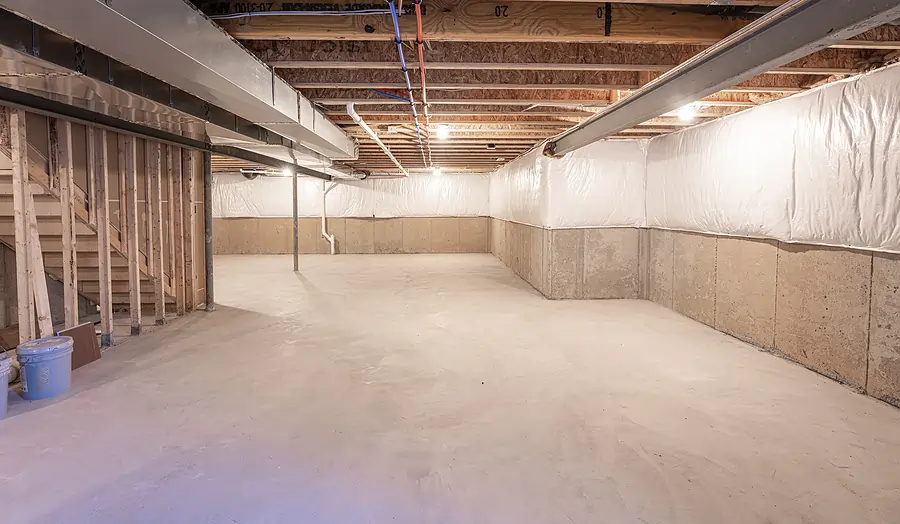Opening Hook
When Ali, a young entrepreneur in Dubai, decided to build a basement parking space beneath his new villa, he thought it was just a matter of digging deeper. Weeks later, a sudden soil collapse during construction not only delayed his project but also cost him thousands in redesign and compliance fines. His mistake? Overlooking retaining wall regulations in the UAE—rules designed to protect properties, workers, and even neighbors.
If you’re planning a basement in the UAE, Ali’s story is a cautionary tale. Retaining walls may seem like hidden, behind-the-scenes structures, but they are the backbone of safe basement construction. And in a country like the UAE, where sandy soils, high groundwater, and urban density pose unique challenges, the rules around retaining walls are stricter than you might expect.
Why Retaining Walls Matter in UAE Basements
At first glance, a retaining wall might look like just another concrete structure. But in basements, it performs critical roles: it holds back soil, prevents flooding, and ensures that surrounding foundations remain stable.

In contrast to countries with naturally firm soil, the UAE’s desert environment creates special challenges. Loose sand, variable groundwater levels, and extreme heat make poorly designed retaining walls prone to cracks, water seepage, or outright collapse. That’s why local municipalities insist on specific engineering and safety standards before issuing approvals.
Read More: Best Water Alarm Sensors for :Basements Protecting Your Home from the Unseen Threat
Rule #1: Mandatory Structural Design Approval
Before you pour even a single cubic meter of concrete, UAE law requires that your basement retaining wall be designed and stamped by a licensed structural engineer.
For instance, Ali’s project stalled because he initially worked with a contractor who skipped this step. Once the Dubai Municipality inspected the site, construction was halted until an approved structural design was submitted.
Key Point:
- Structural drawings must comply with the Dubai Municipality (DM) or Abu Dhabi Department of Urban Planning & Municipalities codes.
- The design must consider soil type, load-bearing capacity, and hydrostatic pressure.
In simple terms: no “do-it-yourself” shortcuts. Every retaining wall in a basement needs professional engineering calculations and official approval.
Read More: Basement Cafeteria Setup for Joint Families
Rule #2: Soil Investigation Reports Are Non-Negotiable
In the UAE, you can’t assume all soil is the same. Even within the same neighborhood, soil conditions can differ drastically. For example, a basement project in Al Barsha might encounter soft dune sand, while one in Deira faces compacted urban fill and higher groundwater.
Requirement: A certified geotechnical report is mandatory before designing a retaining wall. This report outlines:
- Soil composition (sand, clay, silt, or mixed).
- Groundwater levels.
- Load-bearing capacity.
Furthermore, municipalities require that this report be conducted by an approved geotechnical laboratory. Without it, retaining wall designs won’t even be considered for approval.
Read More: What Causes Bad Basement Air & How to Fix It
Rule #3: Waterproofing & Drainage Are Essential
One of the most overlooked—but most enforced—rules in UAE retaining walls is waterproofing. Given the high groundwater table in many parts of Dubai and Sharjah, basements are at constant risk of seepage.
For instance, a villa owner in Mirdif learned this the hard way when, after heavy rains, water leaked into his underground gym. The municipality later found that its contractor had skipped mandatory wall drainage provisions.
Compliance Guidelines:
- Retaining walls must include waterproof membranes approved for underground use.
- Drainage systems, such as weep holes or French drains, are required to release hydrostatic pressure.
- Regular inspections ensure waterproofing is applied correctly during construction.
In contrast to what many homeowners think, waterproofing isn’t an “extra” add-on—it’s a legal requirement.
Read More: Creating a Kid-and-Parent Friendly Basement Together
Rule #4: Minimum Wall Thickness & Reinforcement
Municipalities across the UAE enforce minimum standards for wall thickness and steel reinforcement. While the exact figures depend on soil reports and design loads, the general guideline is that retaining walls must be reinforced concrete, not just blockwork.
As a result, cutting corners with thinner walls or low-grade steel is strictly prohibited. Contractors found violating these rules risk blacklisting and heavy penalties.
Read More: How Monsoon Affects Basement Excavation in Pakistan
Rule #5: Neighboring Property Protection
In dense urban areas like Dubai Marina or Sharjah’s residential clusters, excavation for basements can destabilize neighboring structures if not managed correctly.
That’s why UAE rules require retaining wall designs to account for lateral support systems (like sheet piling or shoring) during construction.
For instance, one developer in Abu Dhabi was fined heavily when basement excavation caused cracks in an adjacent villa’s boundary wall. The municipality forced him to cover repair costs, plus redesign his retaining system.
Lesson: Retaining walls don’t just protect your basement—they safeguard your neighbors too.
Read More: Moisture-Resistant Furniture Material Ideas: Choosing Pieces That Last a Lifetime
Rule #6: Construction Supervision & Municipality Inspections
It’s not enough to have an approved design on paper. Municipal engineers regularly visit construction sites to ensure retaining walls are being built as per specifications.

Furthermore, registered consultants must supervise the entire process—from steel reinforcement placement to concrete pouring. If deviations are found, work can be stopped immediately.
Think of it as a double-check system: engineers design it, municipalities approve it, and inspectors enforce it.
Read More: Basement Office Ideas – 11 Stylish Work From Home Spaces
Rule #7: Fire Safety & Utility Considerations
Few people realize that retaining wall rules also tie into fire and utility codes. In some basement projects, walls may need to provide fire resistance ratings, especially in commercial or mixed-use buildings.
Additionally, utility lines (such as water and drainage pipes) must be integrated without compromising structural strength. The municipality requires prior approvals for any penetrations in retaining walls.
Read More: Creating a YouTube Studio in a Basement :Turning Hidden Spaces into Creative Havens
The Human Side: Why Rules Protect Homeowners
At times, homeowners view these regulations as frustrating red tape. But the truth is, they exist to protect people.
Take the story of a family in Sharjah who built a basement playroom. Two years later, water seepage and cracks made the space unusable. Had their contractor followed municipality rules, the family would have avoided costly repairs and emotional distress.
In contrast, homeowners who invest in proper approvals often enjoy trouble-free basements for decades—whether used as parking, gyms, or guest suites.
Read More: Creating Balanced Lighting with Wall Washers: A Guide to Illuminating Your Space
Preventive Tips for Homeowners & Developers
To stay on the safe side, here are practical tips:
- Always hire licensed contractors and consultants familiar with UAE codes.
- Ask for soil test reports before approving designs.
- Insist on municipality-approved waterproofing systems.
- Keep copies of all inspection reports for future reference.
- Never rush retaining wall construction—quality here saves money later.
Read More: Feng Shui Tips for Basement Layouts :Creating Balance Below Ground
Closing: Building Strong Foundations in the UAE
Retaining walls may never be the glamorous part of a basement project, but they are the silent guardians that keep your underground space safe and functional. In the UAE, where soil, climate, and urban density add extra challenges, following retaining wall rules isn’t optional—it’s essential.
Ali, the villa owner from Dubai Marina, eventually got his basement completed—this time with proper approvals, thicker walls, and advanced drainage. Today, his underground parking is both safe and reliable. He admits: “If I had respected the rules from the start, I would have saved months of stress and a lot of money.”
Final Thought: Whether you’re building a family villa or a commercial tower, remember this—your basement’s safety depends not just on what you build, but on how faithfully you follow the rules that protect it. Strong walls don’t just hold back soil; they hold up peace of mind.
🏗️ Basement Project Calculator
Latest Post
-
How to Build a Legal Basement Apartment in the USA | Guide
Opening Hook Imagine this: you’re standing in the nearly-finished basement of your home in the USA, and the monthly rent from the future tenant—or perhaps your aging parents moving in with you—is just about enough to cover your mortgage. You’ve envisioned your own “in-law suite,” financial freedom, or added flexibility. But then, you pause and…
-
20 Best Basement Man Cave Ideas for the Ultimate Space
Imagine this: you come home after a long week in your busy USA-based life, head downstairs, flip on the lights in the basement, and step into your very own retreat — a space built just for you. That’s the magic of basement man cave ideas, a growing trend for homeowners who want a unique sanctuary…



